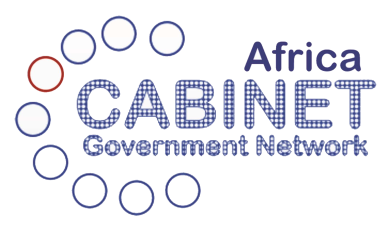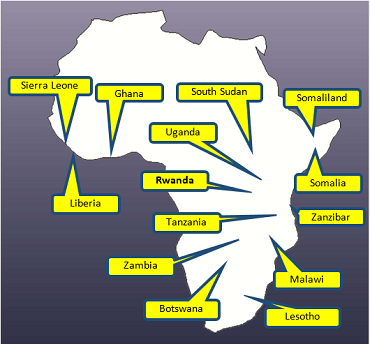The ACGN Builds the Capacity of African Cabinet Systems
Governments in many countries have identified problems that inhibit their capacity to take coordinated action:
- Policy proposals from ministries are not based on adequate evidence and analysis;
- Proposals to Cabinet are often too narrow, failing to identify issues affecting other sectors;
- Ministries often fail to consult with other ministries or agencies in preparing proposals with wider implications for other sectors or the budget;
- Cabinet meetings are frequently bogged down with mundane issues, which tend to crowd out consideration of strategic priorities;
- Decisions are just not implemented, either because decisions are taken without adequate consideration of implications and implementation requirements or because of inadequate follow-up and support;
- Cabinet procedures do not facilitate effective decision-making on complex cross-cutting issues:
- Ministers have insufficient time to read and consider complex proposals;
- Cabinet manuals do not exist, are out of date or are largely ignored; this has led, for example, to late circulation of proposals and insufficient attention to wider implications;
- Proposals submitted to Cabinet are not easy to read, do not highlight key issues and do not provide evidence on the implications of recommendations (eg fiscal implications; impact on key groups);
- Cabinet processes have generally failed to take advantage of IT opportunities to streamline the flow of documents and to facilitate compliance with procedural rules.
- More fundamentally, many ministries have become ‘silos’, making it difficult to develop and implement policies that cut across traditional civil service boundaries.
The ACGN provides practical help to address such problems:
- Building capacity to base policy proposals on evidence regarding their likely impact;
- Setting up delivery/implementation units to focus attention on implementation issues and to support, track and drive implementation of key decisions;
- Preparing or revising procedural manuals for Cabinet, with steps to ensure proposals are submitted with enough time for Ministers to consider and to be briefed on policy proposals and the evidence that supports them;
- Procedural changes to help Cabinets focus on major strategic issues (eg: criteria for submitting issues to Cabinet; two-track procedures);
- Establishing Cabinet Liaison Officer networks across line ministries to facilitate document flow and to assist ministries prepare evidence-based proposals and reports;
- Developing a standard format for Cabinet proposals which ensures key issues are addressed and makes efficient use of the time of Ministers and the President/Prime Minister;
- Consultation processes to involve relevant agencies in developing proposals;
- Training in policy development and Cabinet procedures for line ministries (including proposal checklists and development of implementation plans);
- Practical mechanisms to coordinate policy development;
- Increased use of IT in Cabinet processes (starting with simple templates and digital formats).

